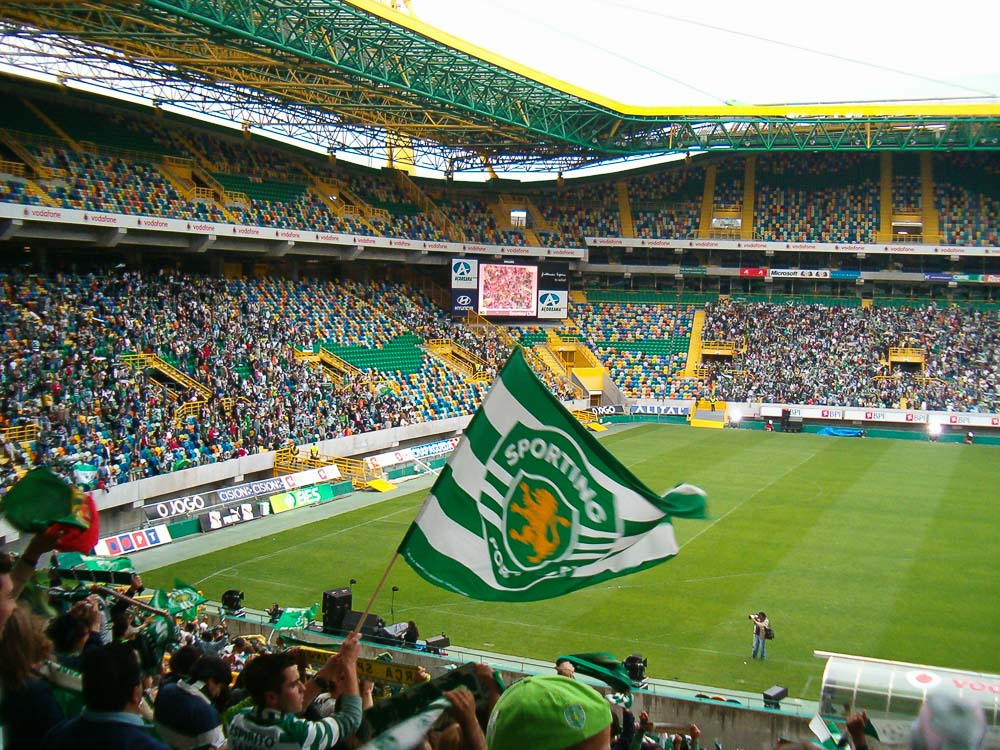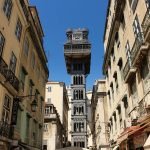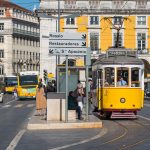If you’re a soccer fan, then you can’t miss the opportunity to visit the José Alvalade Stadium during your next trip to Lisbon!
Home to Sporting Clube de Portugal, one of the most successful teams of the country, the José Alvalade Stadium opened in 2003 and has hosted many important matches from Europe League and Champions League.
Besides offering such a welcoming environment for both the players and the spectators, this stadium also provides other activities beyond sports events. That’s because it’s part of the Larger Alvalade XXL complex, where you’ll find a movie theater, lots of shops and the Sporting Museum.
So, whether you’re looking to experience a match or just want to explore diverse entertainment options, the José Alvalade Stadium is a great place to visit. Then join me and I’ll tell you everything you should know before your visit!
Jose Alvalade Stadium (Sporting Clube de Portugal) – In a nutshell
- Visiting hours: Tuesday to Sunday and holidays, tours at 11:30am, 2:30pm, 3:30pm, and 4:30pm.
- Recommended duration of visit: 1-2 hours
- Tickets: official website
- Schedule: official website
- Address: Rua Professor Fernando da Fonseca, 1501-806 Lisboa, Portugal
- Nearest station: Campo Grande
- Capacity: 50,095
Index
- History
- The stadium
- The museum
- Ticket information
- How to get to José Alvalade Stadium?
- Practical info
- Where to stay near José Alvalade Stadium?
- What are the biggest stadiums in Portugal?
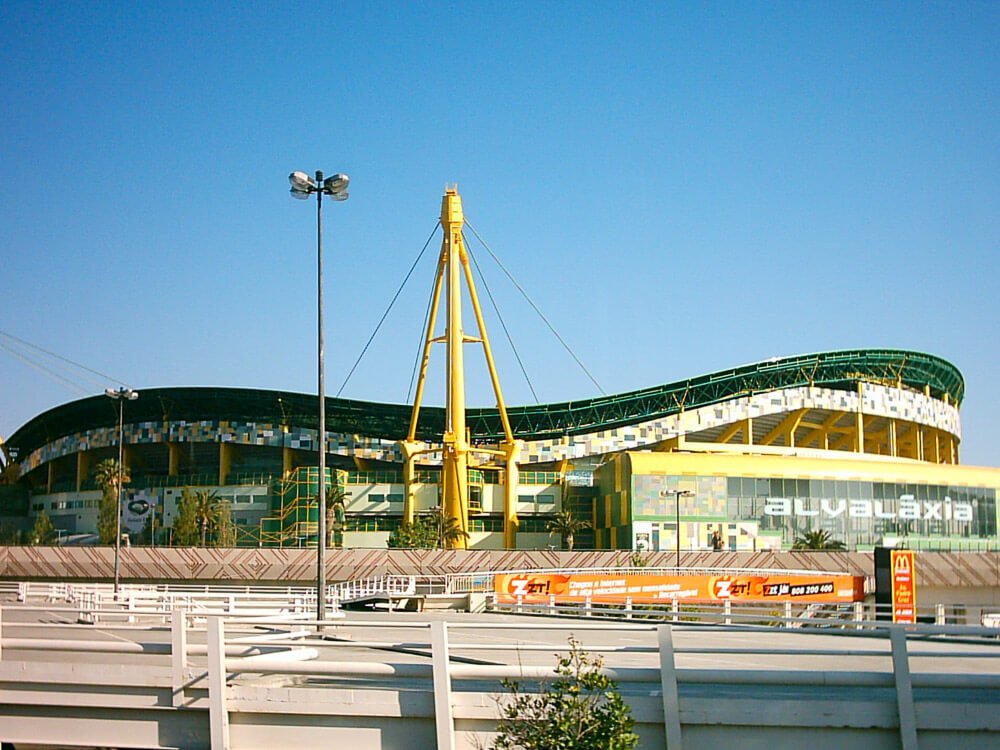
1. History
The José Alvalade Stadium opened on August 6, 2003, and is a significant addition to Sporting Lisbon’s history: it’s the club’s seventh stadium since 1906 and was named after José Alvalade, the team’s founder.
It was constructed for the Euro 2004 tournament, right next to Sporting’s former stadium, and still stands as one of Europe’s biggest soccer venues.
The inaugural event at the stadium was a friendly match against Manchester United, and featured a young Cristiano Ronaldo. The iconic CR7 played for Sporting from 1997 to 2003, and to this day that opening match is considered one of his best performances! It led him to be discovered, and a few months later Manchester offered him 15 million euros to join their team.
That’s why José Alvalade Stadium is a great representative of the club’s stature in European soccer. After all, Sporting Lisbon is recognized for its high-quality soccer academy, which has played a role in establishing it among Europe’s notable teams.
Their achievements include being the only Portuguese club to win the UEFA Cup Winners’ Cup and producing prominent players like Joao Pinto, Nani, Simão Sabrosa, Paulo Futre, and Luis Figo.
Besides that, the stadium is an integral part of Portugal’s sports culture by hosting matches between the rivals Sporting Lisbon and Benfica. Their encounters are eagerly awaited by fans and feature the most talented players developed through programs like those at José Alvalade Stadium.
2. The stadium
The Estádio José Alvalade was designed by the renowned architectural firm Tomás Taveira Arquitetos. They created a modern and visually striking venue, with an oval shape and a curved roof, featuring glass and steel elements.
Of course, the design didn’t focus only on the aesthetics, but also on functionality. It meets UEFA’s standards for a 5-star rating stadium, and includes modern dressing rooms, media facilities for international broadcasts, VIP lounges with good views of the pitch, and hospitality areas.
The José Alvalade Stadium has a total capacity of 50,095 seats, divided into the following sections:
- North Stand: located behind a goal, it has two tiers to accommodate away supporters.
- South Stand: hosts home fans exclusively, contributing to an energetic atmosphere during Sporting Lisbon matches.
- East Stand: runs along one side of the pitch with two tiers separated by executive boxes.
- West Stand: mirrors the East setup, but also contains dugouts, changing rooms and a family-friendly section.
This layout was carefully planned to ensure clear sightlines and comfort, while also putting safety as a priority. That way, it’s able to offer an engaging experience for everyone, from die hard soccer fans to families.
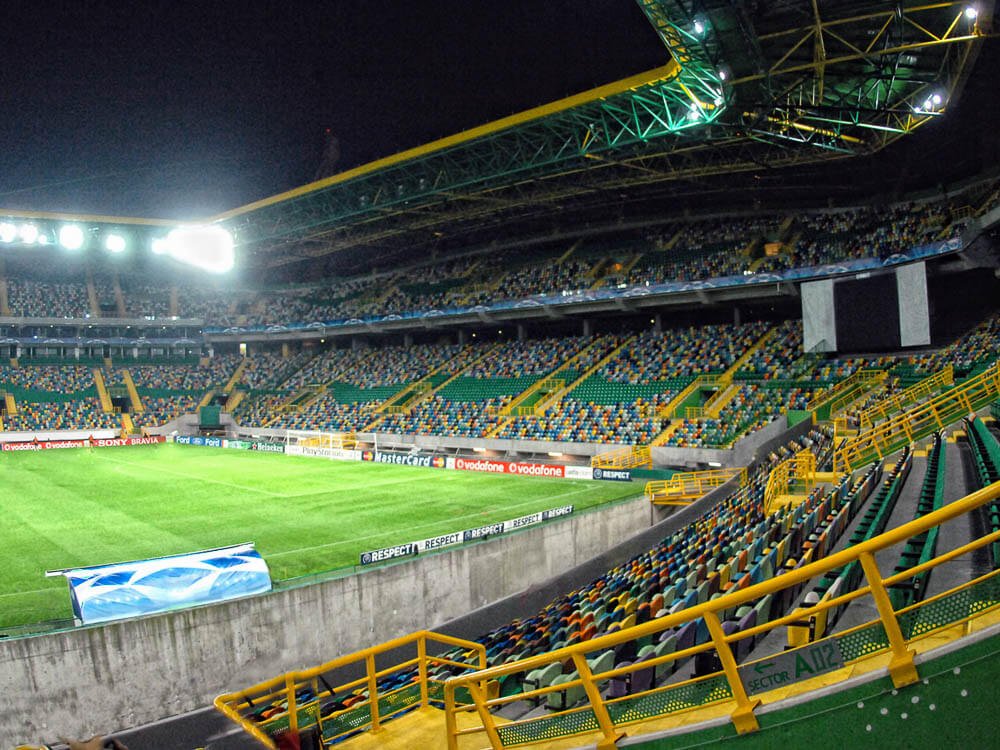
3. The museum
The Sporting Museum, located in the Alvalade complex, documents Sporting’s achievements since 1906, serving as both a tribute to the club’s past and a learning spot for those interested in learning more about its history.
The museum allows for a more hands-on experience, due to its interactive exhibits, and has displays and multimedia presentations that will give you a better understanding of Sporting’s growth and impact.
There’s also a permanent display of trophies won by Sporting Lisbon, along with jerseys, photos, and other memorabilia from key figures linked to the club.
So, if you’re planning on going to your first match at the Alvalade Stadium, I highly recommend that you check out the museum beforehand!
It’s the best way to connect with fans and get to know more about Sporting’s achievements and its place in Portuguese sports culture. After having experienced all of the club’s history and having seen them in action, I’m sure you’ll become a fan for life!
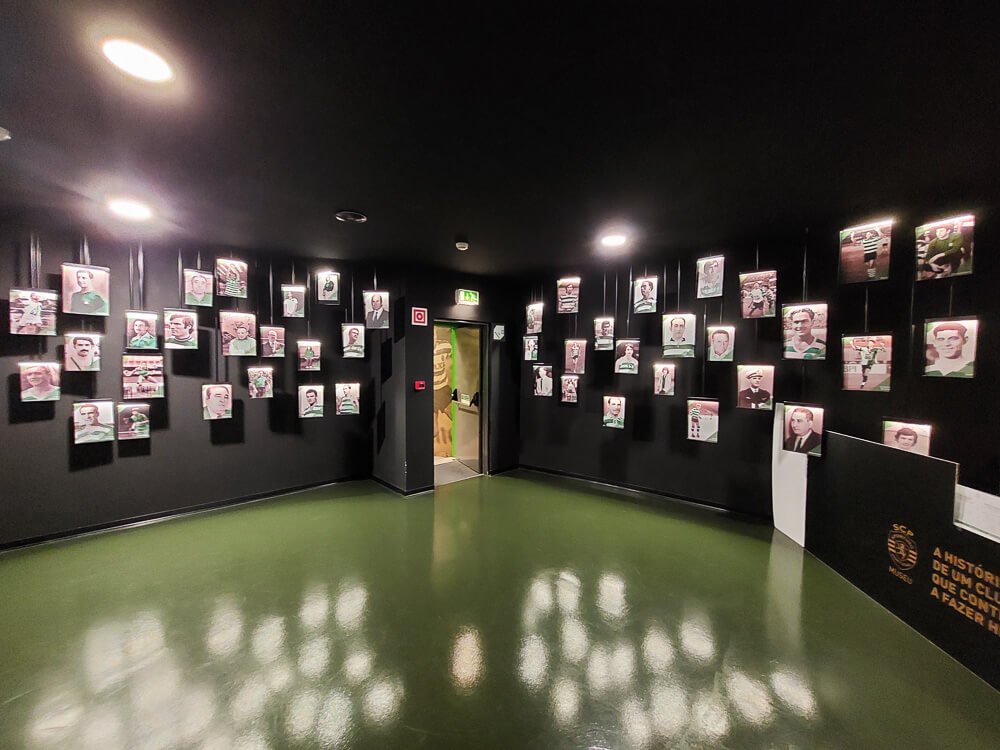
4. Ticket information
Stadium Tours at José Alvalade Stadium are a great way to gain insight into how a major soccer stadium operates. Even if you’re like me (a.k.a. doesn’t understand anything about soccer), it’s a fascinating experience, and it actually made me appreciate the sport a lot more.
The tours are scheduled from Tuesday to Sunday at 11:30 am, 2:30 pm, 3:30 pm, and 4:30 pm, and they include access to both the stadium and Sporting Museum. Just keep in mind that they don’t run on days with home games or 48 hours before international matches, due to event operations.
Adults can join a tour for €14 each, and there’s a lower rate of €7 for children between the ages of 7-13 years and for seniors over 65. Families can opt for a package at €30, which includes entry for two adults and three children.
To book or learn more, email museu@sporting.pt. If you’d also like to catch a live match at José Alvalade Stadium, you can get your tickets online or directly at the stadium’s box office.
5. How to get to José Alvalade Stadium?
José Alvalade Stadium is located 7 kilometers from Lisbon’s center, and getting to it is a very straightforward process, as the stadium is well signaled and there are several ways to reach it.
If you’re driving, take the E1 motorway and use exit 5 for Campo Grande. If you’re using public transport, there are various bus numbers that stop at Campo Grande Bus Station near the stadium: 701, 717, 736, 747, 767, 778, 796, and 798. Plus, the metro’s yellow and green lines stop at Campo Grande Station.
6. Practical info
If you’re attending an event at José Alvalade Stadium, it’s important that you’re familiarized with the seating setup. The first thing you should know is that the Sporting Lisbon’s Organised Fan Groups usually occupy Stand A at the South Goal End.
On the other hand, visitors have their own section in sector A9, which might extend to sectors A7, A11, B7, B11, and B13 if needed. Safety measures are in place here, with stewards and police monitoring during stadium events.
Remember, outside food or drinks aren’t allowed, and alcohol isn’t sold on the premises. However, you can purchase snacks and soft drinks from concession stands inside.
By following these guidelines, your visit should be smooth and trouble-free!
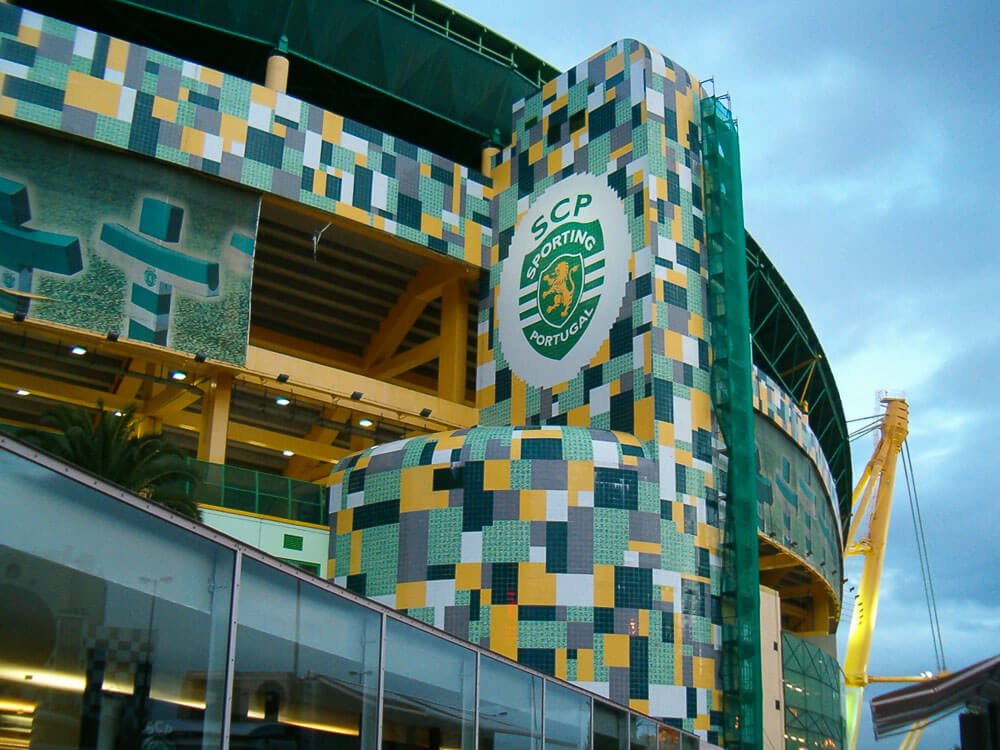
7. Where to stay near José Alvalade Stadium?
When visiting Estádio José Alvalade for a game or event, finding the right accommodation is essential to ensure you’re comfortable while still conveniently located. These are my main recommendations:
- Radisson Blu Hotel: this 4-star hotel is located just 100 meters from Campo Grande Metro Station and a short walk from the stadium. It features a bar and restaurant, and offers a 24-hour fitness center, free WiFi and daily breakfast buffet.
- Lisbon Marriott Hotel: this 4-star hotel is 1.6 km from Alvalade Stadium, and features an outdoor swimming pool, garden area, bar and restaurant. The rooms have flat-screen cable TV, a desk, floor-to-ceiling windows and a balcony. It also offers a daily breakfast buffet.
- NH Lisboa Campo: located across the street from Entrecampos Station, also 1.6 km away from Alvalade Stadium. The comfortable rooms have large windows, cable TV, free WiFi, a minibar and they even have a pillow menu, and guests can enjoy their daily breakfast buffet.
- The ICONS Lisbon Central Hotel: this 3-star hotel is 2,2 km from Alvalade Stadium, but still conveniently located and with daily breakfast. The rooms have flat-screen TV and air conditioning, and some of them have balconies with great city views.
8. What are the largest stadiums in Portugal?
Besides José Alvalade Stadium, the biggest stadiums in Portugal are:
- Estádio da Luz: located in Lisbon, this stadium is the home ground for S.L. Benfica. It opened in 2003 and was built near the old Estádio da Luz, which was Europe’s largest stadium when it opened in 1954. Having a capacity of 64,642 seats, it’s been the venue for major events such as the Euro 2004 final and the Champions League Final in 2014.
- Estádio do Dragão: located in Porto, this is another significant stadium, home to FC Porto. It also opened in 2003, holds up to 50,033 people and has hosted important international and national matches. Notably, it was chosen for the UEFA Nations League Final in 2019 and later for the UEFA Champions League Final in 2021.
Each of these venues have their special place in Portuguese sports culture and offer facilities similar to those at José Alvalade Stadium, having witnessed memorable moments and been a safe space for passionate fans.
Get ready for a thrilling soccer experience at José Alvalade Stadium!
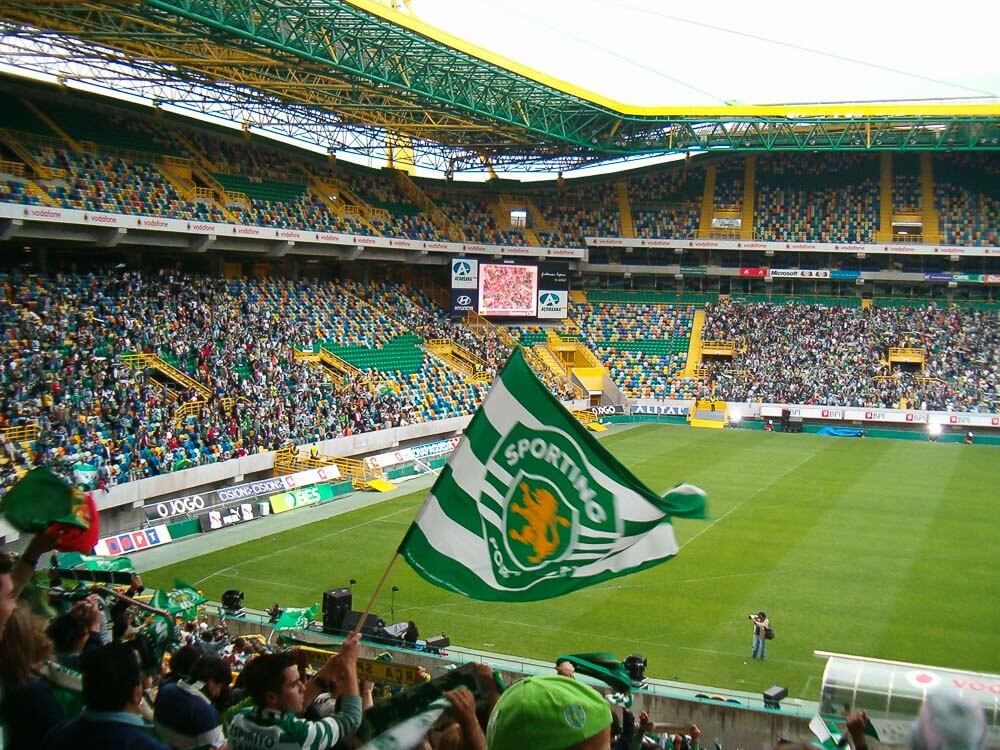
It doesn’t matter whether you’re a die hard fan or just curious about soccer’s cultural significance in Portugal, getting to know the José Alvalade Stadium is a must for anyone! As the home ground of Sporting Lisbon, visiting it is a great way to gain insight into the local culture and soccer history.
And, if you choose to attend a match, you can be absolutely sure that you’ll experience much more than just a regular match! You’ll get a taste of how this sport brings people together through shared excitement and a sense of belonging.
So, don’t miss out on the opportunity to visit the José Alvalade Stadium next time you’re in Lisbon!

